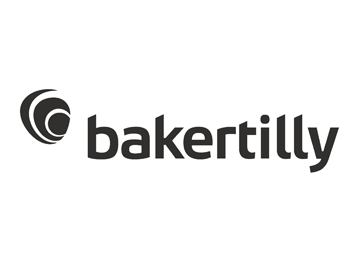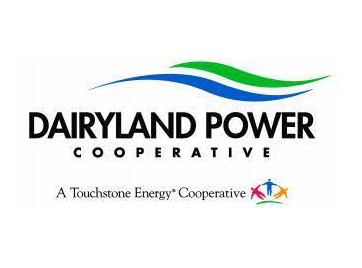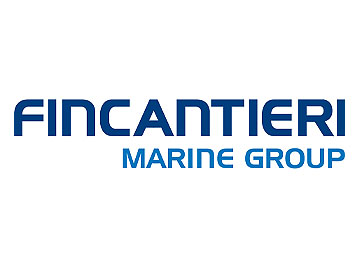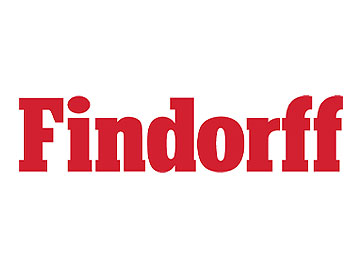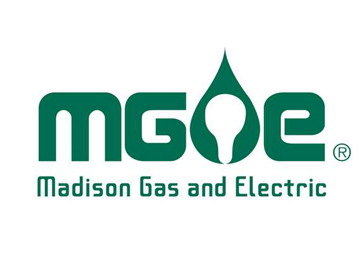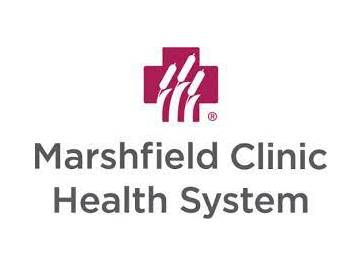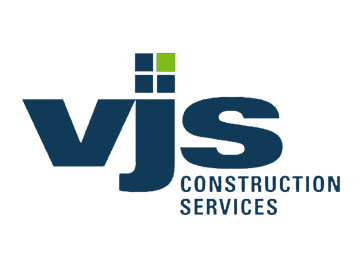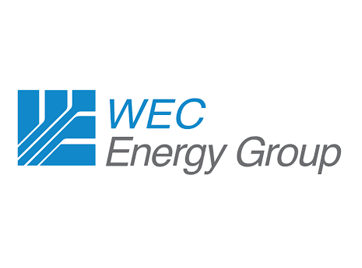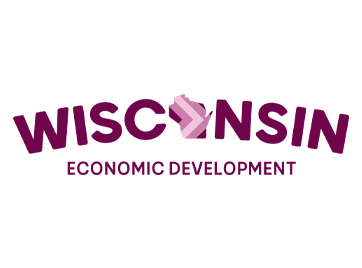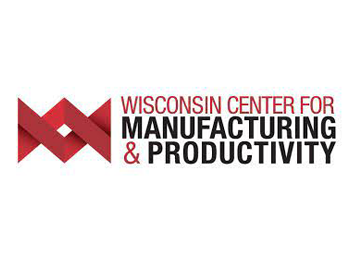April 30, 2018
Gov. Walker signs historic tax credit; talent attraction bills into law
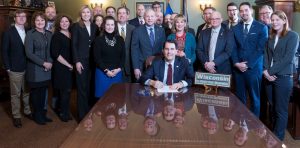 Earlier this month, Gov. Scott Walker put a bow on the 2017-18 legislative session, signing the last large batch of bills the Legislature sent to his desk. Among the final bills signed into law was legislation to restore the historic tax credit (HTC) as a powerful economic development tool and a proposal to inject $6.8 million into WEDC’s Think-Make-Happen talent attraction marketing program.
Earlier this month, Gov. Scott Walker put a bow on the 2017-18 legislative session, signing the last large batch of bills the Legislature sent to his desk. Among the final bills signed into law was legislation to restore the historic tax credit (HTC) as a powerful economic development tool and a proposal to inject $6.8 million into WEDC’s Think-Make-Happen talent attraction marketing program.
The HTC bill (SB 668) preserves the state’s HTC program as a key economic driver in both small and large communities across Wisconsin. The legislation increases the per project/parcel cap on HTC awards to $3.5 million, “fixing” the partial budget veto that would have set the HTC per project cap at $500,000 beginning in July 2018.
In addition to restoring the state HTC program, WEDA also actively engaged in advocacy efforts to preserve the federal HTC program, which was in jeopardy of being eliminated as part of the federal 2017 Tax Cuts and Jobs Act. Fortunately, the federal HTC was saved, but Congress made the following changes to the program in the comprehensive tax reform bill passed late last year:
- Eliminated the credit for qualified rehabilitated buildings constructed prior to 1936.
- Requires the federal HTC credit for certified historic buildings to be paid out over five years, rather than in one lump sum when the project is placed in service.
The changes to the federal HTC also impacted Wisconsin’s program. Since Wisconsin’s HTC program acts as a supplement to the federal historic tax credits, the Tax Cuts and Jobs Act modifications also apply to Wisconsin’s credits. As a result, the state credit for pre-1936 buildings is effectively eliminated and state credits for certified historic buildings must now be claimed over a five-year period.
Gov. Walker also signed another critical economic development-related bill into law – AB 811. The legislation will provide new funding to build off the WEDC’s Think-Make-Happen talent attraction platform, expanding its reach and focusing on key populations that are more likely to relocate to Wisconsin – including millennials from neighboring states and Wisconsin alumni. It will also allow for greater collaboration and resource sharing among state agencies, which should result in a more consistent and effective message that is needed to help attract skilled employees to Wisconsin. The $6.8 million investment in the program should serve as a key component to the state’s overall efforts to address the workforce shortage crisis.
WEDA legislative session recap
 WEDA began the 2017-18 legislative session with an aggressive legislative agenda to enhance effective economic development tools; strengthen Wisconsin’s workforce; build a more competitive business climate; and support a robust infrastructure.
WEDA began the 2017-18 legislative session with an aggressive legislative agenda to enhance effective economic development tools; strengthen Wisconsin’s workforce; build a more competitive business climate; and support a robust infrastructure.
Thanks to the increased advocacy efforts of WEDA members across the state, the session provided some significant “wins” for economic development. For a quick recap of WEDA’s legislative successes, as well as a few disappointments, please see our 2017-18 Legislative Priorities Scorecard. In addition, click here to view the full list of legislation supported by WEDA that was signed into law during the 2017-18 legislative session.
If you have any questions or would like more information on WEDA’s Legislative Priorities Scorecard or the legislation listed-above, please contact WEDA Legislative Affairs Director Michael Welsh at mwelsh@weda.org.
Site work begins on Foxconn project
According to the latest Wisconn Valley News, site preparation work began last week on the $10 billion Foxconn advanced manufacturing campus in Racine County that could eventually employ up to 13,000 workers. An official groundbreaking ceremony is expected to be held within the next few months. Please click here to see a timeline of developments and progress made on the Foxconn project since Wisconsin began conversations with the Taiwan-based electronics manufacturer last year.
In addition to announcing the start of site preparation work, Foxconn and M+W Gilbane, the construction manager that will oversee the project’s budget and bid development, also announced that 90 percent of the contractors for the site work are from Wisconsin. Of the 90 percent of Wisconsin companies, 10 percent are from Racine County, and 10 percent are minority, veteran or woman owned businesses.
For more information of the Foxconn project, visit the state of Wisconsin’s Wisconn Valley website.
Governor’s veto extends sales tax holiday
The last edition of Political News and Notes reported on the Legislature’s passage of legislation (SB 798) to provide parents with a child tax rebate of $100 per child, as well as a one-weekend “back-to-school” sales tax holiday. Since then, Gov. Scott Walker has signed the bill, but not before he used his veto pen to extend the sales tax holiday.
The legislation as passed by lawmakers created a two-day sales tax holiday scheduled for the weekend of Aug. 4-5, 2018. Through the creative use of his veto pen, Walker extended the sales tax holiday from two to five days, which will now run from Aug. 1 through Aug. 5. The Governor’s action to extend the tax holiday will cost the state an extra $3 million, bringing the total cost to cost $14.8 million over the five-day period.
During the sales tax holiday, shoppers will NOT pay sales taxes of following items:
- Clothing with a sales price of no more than $75 per item;
- Personal computers with a sales price of $750 or less;
- Personal school computer supplies of no more than $250 per item; and
- School supplies with a sales price no more than $75 per item
Certain items will remain taxable during the sales tax holiday, including: Sports or recreational equipment; protective equipment; clothing accessories, such as jewelry or watches; school art supplies; and school instructional materials, such as textbooks.
Gov. Walker’s Veto:
WEDA announces “Champion of Economic Development” award winners
WEDA has officially unveiled its new legislative awards program by announcing the 2018 “Champion of Economic Development” award winners. The award is presented to state legislators who 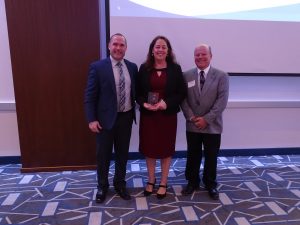 exemplify WEDA’s mission of promoting economic development and have shown a commitment to making Wisconsin a better place to live, work and do business through policies that advance economic growth. The award will be given out every two years following the end of each legislative session.
exemplify WEDA’s mission of promoting economic development and have shown a commitment to making Wisconsin a better place to live, work and do business through policies that advance economic growth. The award will be given out every two years following the end of each legislative session.
WEDA is presenting the award to 20 state lawmakers in 2018 who exhibited an exceptional commitment to growing Wisconsin’s economy based on several factors, including voting record, sponsorship of legislation and responsiveness to critical economic development issues during the 2017-18 session. Here is the list of the 2018 “Champion of Economic Development” award winners:
- Rep. Peter Barca (D-Kenosha)
- Rep. Jill Billings (D-La Crosse)
- Rep. Rob Brooks (R-Saukville)
- Rep. Mike Kuglitsch (R-New Berlin)
- Rep. Amy Loudenbeck (R-Clinton)
- Rep. Dave Murphy (R-Greenville)
- Rep. Adam Neylon (R-Pewaukee)
- Rep. Tod Ohnstad (D-Kenosha)
- Rep. Warren Petryk (R-Eleva)
- Rep. Romaine Quinn (R-Barron)
- Rep. Mike Rohrkaste (R-Neenah)
- Rep. Mark Spreitzer (D-Beloit)
- Rep. Dave Steffen (R-Green Bay)
- Rep. Travis Tranel (R-Cuba City)
- Sen. Janet Bewley (D-Ashland)
- Sen. Dan Feyen (R-Fond du Lac)
- Sen. Jerry Petrowski (R-Marathon)
- Sen. Janis Ringhand (D-Evansville)
- Sen. Roger Roth (R-Appleton)
- Sen. Patrick Testin (R-Stevens Point)
WEDA will be presenting the awards to legislators in their home districts with the participation of WEDA staff and local members. Earlier this week, WEDA presented the “Champion of Economic Development” award to Rep. Jill Billings (D-La Crosse) at the La Crosse Area Development Corporation’s Economic Forum.






